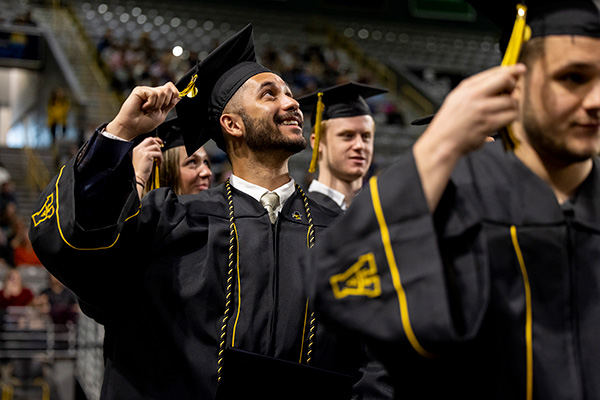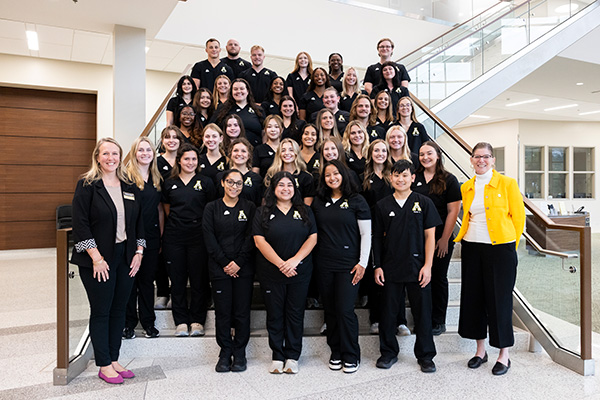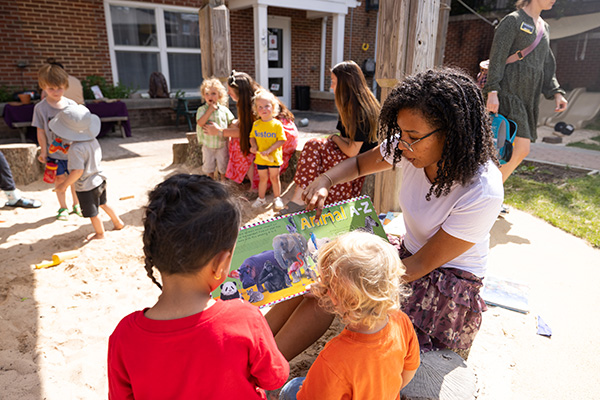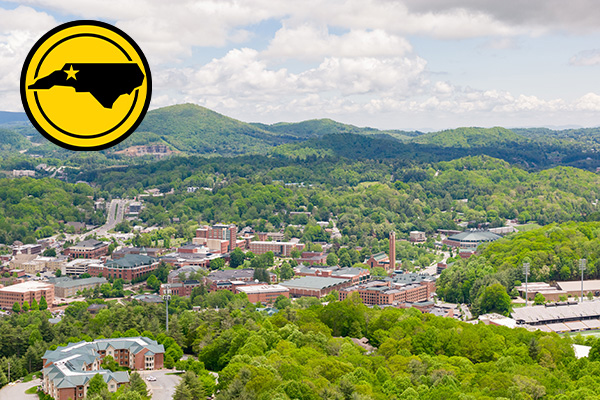BOONE, N.C.—For the second time in two years, Appalachian State University will serve as an Institute Partner for the Mandela Washington Fellowship for Young African Leaders.
Beginning June 16, 25 African leaders from 20 countries will come to Appalachian for a six-week academic and leadership institute sponsored by the U.S. Department of State and supported in its implementation by the International Research and Exchanges Board (IREX). The university assumed a similar role last summer.
“I am pleased that our university was selected again based on the excellent work we did last year and the feedback provided by our fellows to both the U.S. Department of State and IREX,” said Dr. Jesse Lutabingwa, associate vice chancellor for international education and development at Appalachian.
“The excellent work last year was mainly due to the overwhelming support and participation from our campus community and the Boone/Watauga County community at large. These kinds of programs are important to Appalachian because they help us to achieve the goal of bringing the world to our campus and our community. We learn as much from the fellows as they learn from us, thus mutually benefiting each other.”
The Mandela Washington Fellowship, the flagship program of the Young African Leaders Initiative (YALI), empowers young African leaders through academic coursework, leadership training and networking opportunities. Fellows, aged 25 to 35, are from every country in Sub-Saharan Africa. They have established records of accomplishment in promoting innovation and positive change in their organizations and communities.
Working closely with the U.S. Department of State and IREX, Institute Partners have designed programs designed to challenge, inspire and empower the fellows. Broadly speaking, the programs at Appalachian will enable participants to study how individual citizens and local groups have worked to influence America’s history, government and society. Fellows are also paired with young local leaders from Boone and Watauga County to observe how the leaders are using their skills to advance the organizations with which they work.
The Appalachian institute will feature several workshops, including “Citizenship, Civic Engagement and Civic Leadership”; “Volunteerism in the U.S.”; “Social Entrepreneurship – Seeing the Opportunity: The Unity Between Needs and Solutions”; and “Communication and Marketing for Non-Profit Organizations.” The fellows will also travel: Local tourist sites on their agenda include Grandfather Mountain, Linville Caverns and Linville Falls. Field visits include a tour of the state capitol building, the North Carolina Justice Center and a session with the Junaluska Community and Junaluska Heritage Association.
Fellows will spend two weekends with local families to observe American family life. The weekends will be July 7 – 9 and July 14 – 16, and there is still a need for host families.
The fellows hosted by Appalachian will be part of a larger group of 1,000 Mandela Washington Fellows studying at institutions of higher learning across the United States this summer. These exceptional young leaders will meet at the end of their institutes in Washington, D.C., for the Mandela Washington Fellowship Summit, where they will take part in networking and panel discussions with each other and with U.S. leaders from the public, private and non-profit sectors.
Following the summit, 100 competitively selected fellows will spend six weeks participating in professional development experiences with U.S. non-governmental organizations, private companies and government agencies.
Upon returning to their home countries, the fellows will continue to build the skills they developed during their time in the United States through support from U.S. embassies, four regional leadership centers, the YALI Network, and customized programming from USAID and affiliated partners. Through these experiences, the fellows have access to ongoing professional development opportunities, mentoring, networking and training and seed funding to support their ideas, businesses and organizations.
For additional questions about the Mandela Washington Fellowship Institute at Appalachian or to volunteer as a host family, contact institute co-directors Lutabingwa and Dr. Brian MacHarg, director of academic civic engagement at Appalachian, at [email protected].
For more information about the Mandela Washington Fellowship, visit https://yali.state.gov and join the conversation at #YALI2017.
About Appalachian State University
As a premier public institution, Appalachian State University prepares students to lead purposeful lives. App State is one of 17 campuses in the University of North Carolina System, with a national reputation for innovative teaching and opening access to a high-quality, cost-effective education. The university enrolls more than 21,000 students, has a low student-to-faculty ratio and offers more than 150 undergraduate and 80 graduate majors at its Boone and Hickory campuses and through App State Online. Learn more at https://www.appstate.edu.
What do you think?
Share your feedback on this story.











